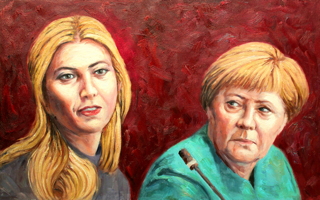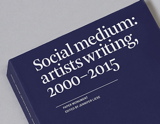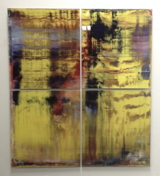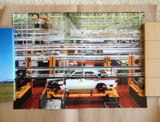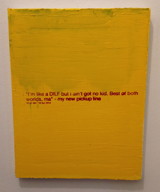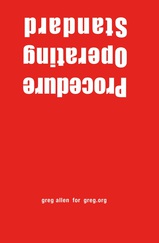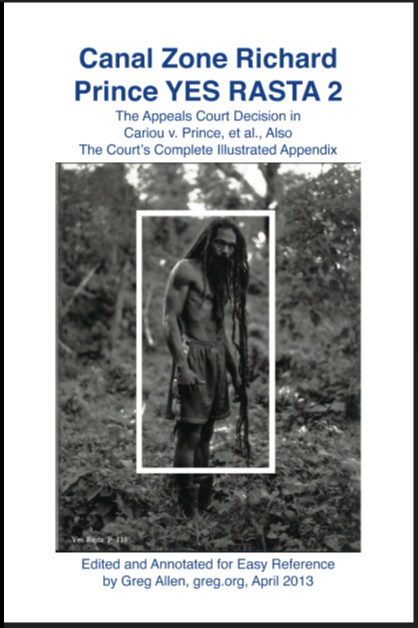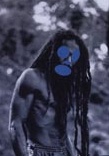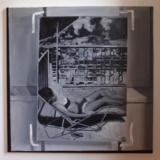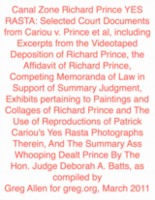This LACMA interview with Vija Celmins about her show there of early work is just great. [The show itself is great, too; it was first at the Menil.]
No sooner did I watch it, than Celmins' name came up in the Jasper Johns Gray catalogue. And I decided that what's needed is more Vija Celmins interviews.
And that's when I realized that my expectation that there weren't enough Celmins interviews was based on my reading of her work as so quiet and self-contained. In fact, Celmins herself is quite open, and gives lots of great, thoughtful interviews.
Here's another from 2008, the Carnegie International:
Art21 did one, of course, but this clip's only a minute long.
Simon Grant did a pretty long career-related interview with Celmins for Tate in 2007, which used the Pompidou's drawings retrospective as its hook.
I started going through my photographs and newspaper clippings that I had collected -images of Second World War planes, a nuclear explosion at Bikini Atoll, an airship - and I made drawings of those.Reading that, and thinking of the Menil/LACMA show, my being reminded of Joy Garnett's paintings doesn't seem that far afield after all.
Anyway.
Phong Bui's 2010 interview is classic Brooklyn Rail: deep and specific on history and the work. Ah, see? Here's the word I was looking for, the one that threw me off of Celmins' interview path:
Rail: Guston also loved Morandi, whom I know you admire, and Morandi's most admired painter was Chardin.But you know where THE Celmins interview is? In a book. Chuck Close interviewed Celmins, at Bill Bartman's behest, and A.R.T. Press published it in 1992. I think I may even have that somewhere. I certainly thought about buying that etching of Saturn often enough. Gotta track that down.Celmins: I like Chardin, too.
Rail: Especially the late Chardins, depicting the modest interiors, which include kitchen maids in moments of reflection. They were generally painted with muted lighting and therefore created a quiet ambiance, which also is reinforced by the subdued color scheme. The series that made the depiction.
Celmins: You know that muteness exists in Vermeer, Chardin, and Morandi. I don't know who else you would say, in contemporary art. Would you say Ryman? It's hard to say.
Rail: It'd be hard to talk about silence or quietude.

